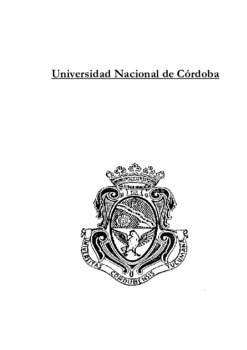The process of identity construction througt the discourse of art within the Canadian postcolonial context in Cat' eye and The blind assassin by Margaret Atwood
| dc.contributor.advisor | Carballo, Mirian | |
| dc.contributor.author | Massano, María Constanza | |
| dc.date.accessioned | 2016-10-20T16:58:15Z | |
| dc.date.available | 2016-10-20T16:58:15Z | |
| dc.date.issued | 2014 | |
| dc.identifier.uri | http://hdl.handle.net/11086/4183 | |
| dc.description.abstract | Since I started to study this Masters Degree the postmodern problematic has captivated me. Delving deeper into the postmodern literary field I found myself attracted by the fact that much of postmodern literature has been giving voice to minority groups. From that moment my interest was directed towards those texts in which minority groups (former colonies and women primarily) occupy an important role within the realm of fiction. I, therefore, delved into many contemporary writers finding the work of Margaret Atwood both attracting and suitable for the study of minorities struggling to have a voice of their own. | es |
| dc.language.iso | eng | es |
| dc.rights | Atribución-NoComercial-SinDerivadas 2.5 Argentina | * |
| dc.rights.uri | http://creativecommons.org/licenses/by-nc-nd/2.5/ar/ | * |
| dc.subject | Atwood, Margaret, 1939- | es |
| dc.subject | Poscolonialismo | es |
| dc.subject | Identidad | es |
| dc.subject | Canadá | es |
| dc.title | The process of identity construction througt the discourse of art within the Canadian postcolonial context in Cat' eye and The blind assassin by Margaret Atwood | es |
| dc.type | masterThesis | es |





